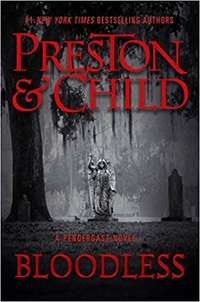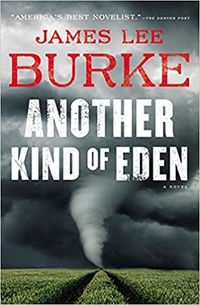Light Chaser by Peter F. Hamilton and Gareth L. Powell
 Monday, August 23, 2021 at 7:38AM
Monday, August 23, 2021 at 7:38AM 
Published by tor.com on August 24, 2021
Humanity has spread itself among the stars, but it has fallen short of its full potential. The message that Peter F. Hamilton and Gareth L. Powell send in Light Chaser will be familiar to science fiction fans: humans need to be challenged or the human race becomes stagnant. Of course, stagnant humans can live pretty good lives — asking a replicator to make me a cheeseburger would be nicer than working all day so I can afford cheeseburgers — but the virtues of endeavor and competition (and even war) have always been preached like religious dogma by the giants of science fiction.
Hamilton and Powell marry the theme of stagnation to another popular theme: fear that Artificial Intelligence will do a disservice to the humans who depend upon it by making our lives too easy, perhaps enslaving us in the process. To sf writers, Alexa is a very naughty girl. In the far future of Light Chaser, AI controls worlds, assuring their stability but denying humans the resources they need to grow and achieve better lives.
The novel begins with Amahle and another person traveling to the home world of the Exalted. They are flying a strangelet into a star that will destroy all the worlds in the star’s system. The novel then backtracks to tell us why this is happening. Unfortunately, it doesn’t tell us enough.
Amahle is a Light Chaser. She is essentially immortal. She is under contract to fly a circuit at near light speed every thousand years. She makes port at various planets, where she trades goods with selected families. In exchange for those goods, family members have agreed to wear memory collars, passing them from generation to generation over the next thousand years. When Amahle returns, she collects the collars and issues new ones. The memory collars store the memories of everyone who wears them. Amahle spends her flight time reviewing the memories on the collars, which I suppose is like watching a steady diet of particularly boring soap operas.
Amahle’s human brain has limited storage capacity, so she can’t remember much of her early years. As she reviews the memory collars, she encounters humans who have messages for her — although the messages all originate from one human who seems to have taken various guises over the years, apart from his identifying tattoo. Piecing together those messages helps Amahle remember that she was once married. Her husband has something important to tell her about the AI that runs her ship. Eventually the messages cause her to distrust all the AIs that are running the systems on every human world. Why that information must be provided in pieces over multiple collars is never entirely clear.
Light Chaser is relatively short, probably short enough to qualify as a novella. Perhaps its length accounts for its failure to develop its themes in full. The AI that controls humanity could be giving humans more resources and better lives. We’re told that it doesn’t do so because its purpose is to assure stability, but we aren’t told why better lives would create instability. Some of the worlds Amahle visits are modern but others are medieval. What’s the point of not allowing (or helping) medieval societies to advance? How does the AI manage to keep humans in a medieval state for millennia? The ultimate purpose of the AI is to deliver memory collars and their stories to the Exalted, but it isn’t clear why the Exalted want stories of stable societies. Wouldn’t stories of unstable societies be more interesting? Nor is it clear why thriving societies would necessarily be unstable. Some of the worlds have attained a future version of modernity without losing their stability. Why won’t the AI allow that on every world?
Hamilton and Powell leave too many questions unanswered, all for the sake of illustrating a well-worn sf mantra: competition is good, managing human life is bad, unstable societies lead to progress unless everyone dies. The Exalted are a plot device rather than an actual race. We know almost nothing about them, apart from their residence “in the null-folds of the Cosmos,” a term that has the vagueness of gibberish, and their desire to “increase the experience which enriched them, by feeding on human experience like vampires of the mind.” What, I wonder, is so interesting about mundane human lives that the Exalted are enriched by experiencing them? Why would they be less enriched if they did not manipulate the human perception of reality, so that humans live in a reality apart from the “original reality we encountered when our souls first emerged into it from our holm beyond.” More gibberish, at least from my admittedly limited perception of reality.
Amanda’s experiences on the worlds she visits and the experiences of people whose memories she reviews demonstrate that the authors are capable of writing with warmth and feeling. Light Chaser is intriguing, but both authors are capable of telling better stories than this one. The clichés about trading stability for progress are too easy and the unanswered questions are too important to ignore. Light Chaser feels like a good idea that never evolved into the complex story that the idea merited.
RECOMMENDED WITH RESERVATIONS



